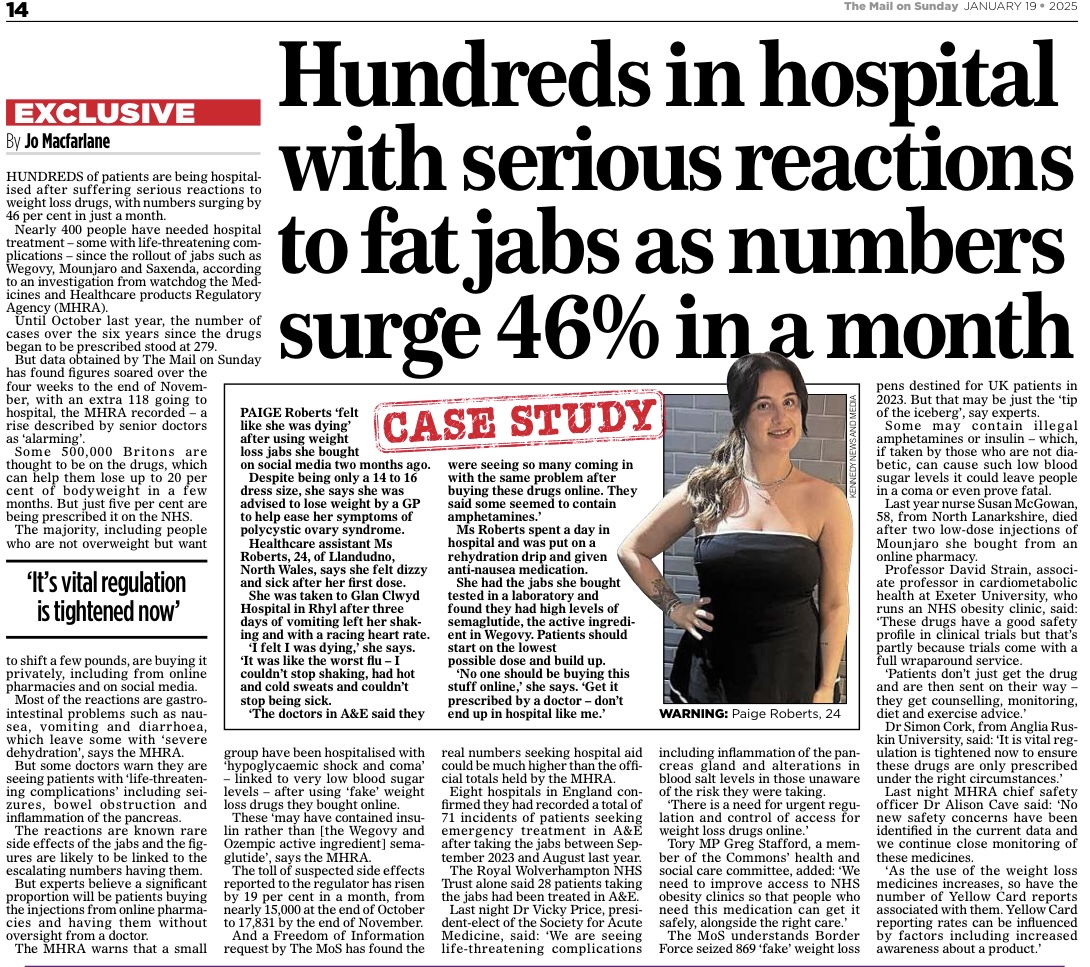The demand for weight-loss jabs like Wegovy, Ozempic and Mounjaro is soaring, driven by promises of rapid results. But our latest investigation found these “miracle drugs” might not be the free lunch they’ve been cracked up to be.
To uncover the dark side of fat jabs — or GLP-1 receptor agonists, as they’re formally known — our first port of call was the Medicines and Healthcare products Regulatory Agency (MHRA). As the UK’s chief medicine safety watchdog, the MHRA meticulously logs reports of adverse drug reactions submitted by doctors, patients and pharmacists.
The data was sobering: in just one month, it emerged there was a 46% surge in patients hospitalised with serious reactions to weight-loss jabs, including nausea, vomiting, diarrhoea, severe dehydration and pancreatitis.
To put that into perspective, GLP-1 receptor agonists have been prescribed to diabetic patients in the UK for over a decade, despite the very recent press furore. In the six years to October 2024, there were 279 hospitalisations linked to these jabs. Then, in November 2024 alone, a massive spike of 118 cases was recorded by the MHRA. Meanwhile, a different dataset from the same organisation showed suspected side effects reported to the regulator had risen 19 percent in a month, from nearly 15,000 at the end of October to 17,831 by the end of November.
Keen to go beyond the MHRA’s database, which undercounts because it’s a voluntary reporting system, we sent out Freedom of Information (FoI) requests to some of the biggest Acute NHS Trusts in England. The eight trusts that responded recorded a total of 71 incidents of patients seeking emergency treatment in A&E after taking the jabs between September 2023 and August 2024. That’s a worrying snapshot, considering there are 124 Acute NHS Trusts in the country, and I sampled only eight.
Alarmed by what the spreadsheets showed, the Mail on Sunday contacted Dr. Vicky Price, president-elect of the Society for Acute Medicine. She said patients who send away for the drugs online are often “unaware” of the enormous risks, including “life-threatening complications such as inflammation of the pancreas gland and alterations in blood salt levels”. An official spokesperson for the MHRA further backed up this narrative of dodgy online dealers, stating that some buyers have been duped into injecting products that may have contained insulin, sending them into “hypoglycaemic shock and coma”.
If the UK market is being bombarded by dodgy drugs, and if they were coming from abroad, the Border Force should be the first to find out. Border Force’s data revealed that 869 fake weight-loss pens, destined for the UK, had been seized in 2023. Some of these products may even contain amphetamines, based on one case study of a 24-year-old patient admitted after using these online knock-off products with a racing heartbeat, shaking, and other symptoms suggestive of stimulant use.
This investigation was published as an exclusive in the Mail on Sunday on January 19, 2025. Read the full report below.



